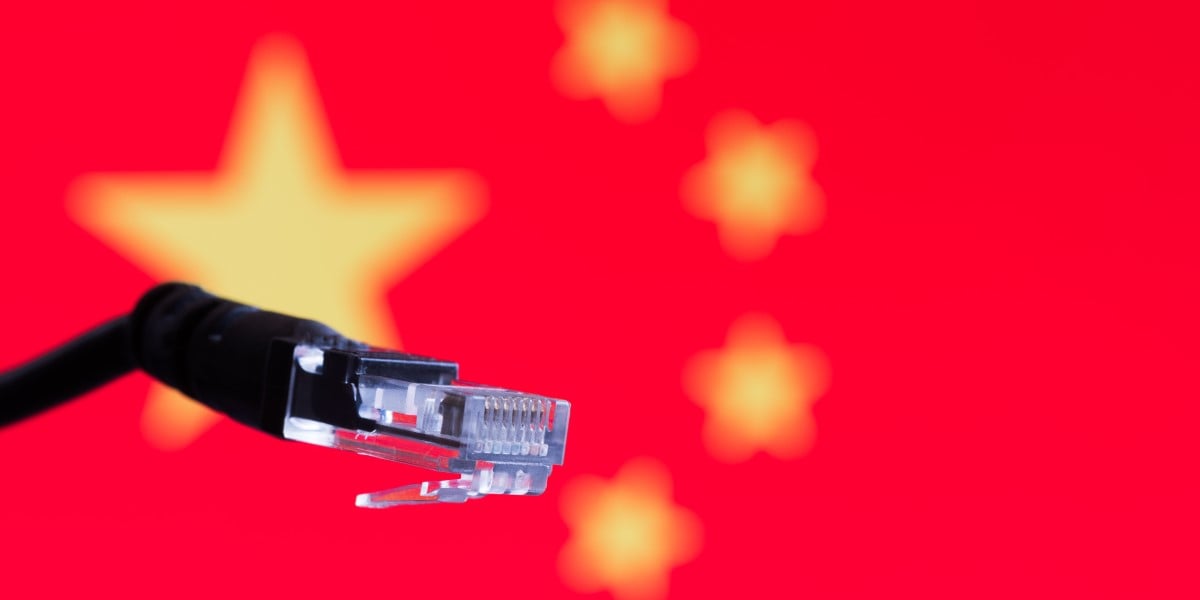China Again Signals Desire To Shape Global IPv6 Standards

China has again signalled its intention to shape IPv6 standards and encourage more uptake of the standards within its borders – but may not have succeeded with its past ambitions.
The nation's Central Network Information Office, Ministry of Industry and Information Technology, and a couple of other agencies on Thursday issued a 2023 Work Arrangement for Further Promoting Large-scale IPv6 Deployment and Application that sets a goal for 750 million users to actively employ IPv6 by the end of 2023, with 300 million Internet of Things devices using the protocol. Fifteen percent of fixed networks and 55 percent of mobile network traffic are expected to run over IPv6 by year's end.
Those numbers represent an increase on 2022's targets that called for 700 million users and 180 million IoT devices by the end of 2023, while the 55 percent mobile-over-IPv6 goal supersedes a previous goal of 45 percent.
The new goals may also be unrealistic. Akamai's State of the Internet report suggests IPv6 adoption rates fell from 28.1 percent in August 2022 to 23.3 percent in April 2023, with a brief spike to 28.7 percent in January 2023.
China won't allow new IPv4 services as of 2024, so it's conceivable the decline in IPv6 prevalence is attributable to a last gasp of IPv4 adoption.
Whatever the cause of the dip Akamai detected, Beijing has plenty of plans to accelerate IPv6 adoption – among them ensuring that clouds, content delivery networks, smartphone apps, and commercial websites make the move to the protocol.
Government websites will also be encouraged do better, while government agencies will be urged to update their applications to IPv6 despite utterly failing to make such targets in 2022.
A reminder: in 2022 China called for 85 per cent IPv6 adoption by government and major commercial websites. Clearly much work remains to be done.
The plan also calls for China to "promote the construction of innovation ecology and standard system. Including improving the 'IPv6+' technology industry ecosystem, strengthening innovative research on new internet architecture, coordinating the formulation and implementation of IPv6 standards, and actively participating in the formulation of international standards for the next generation internet."
- Japan's NTT Docomo uses invisibility cloak tech to fix 5G reception
- Energy efficiency starts to rock telcos' 5G infrastructure choices
- Japanese sushi chain boss resigns amid accusation of improper data access
- Warning: Your wireless networks may leak data thanks to Wi-Fi spec ambiguity
China's tried to formulate such standards before, with a plan for "New IP" that it tried to push through the International Telecommunications Union (ITU) despite that body not overseeing development of the Internet Protocol standard.
New IP, which has its roots at Huawei, included features that would allow governments greater control over the internet. Russia and China backed a candidate for ITU secretary-general who supported the idea that nations should have more control over the internet within their jurisdictions.
A rival candidate backed by the US and other nations was elected to the post, making it less likely that New IP would be endorsed.
China's efforts to influence standards have since been rated ineffectual and amateurish by the Carnegie Endowment for International Peace.
Beijing's latest IPv6 update makes it plain that China has not given up on its ambition to shape the standard – probably in ways that reflect its own preference for state control of the local internet.
Chinese citizens last week had a horrible taste of that control at work: news of a fire in a Beijing hospital that killed at least 20 patients was scantily reported on social and news media – a seemingly intentional act of preventing bad news from reaching the populace. ®
From Chip War To Cloud War: The Next Frontier In Global Tech Competition
The global chip war, characterized by intense competition among nations and corporations for supremacy in semiconductor ... Read more
The High Stakes Of Tech Regulation: Security Risks And Market Dynamics
The influence of tech giants in the global economy continues to grow, raising crucial questions about how to balance sec... Read more
The Tyranny Of Instagram Interiors: Why It's Time To Break Free From Algorithm-Driven Aesthetics
Instagram has become a dominant force in shaping interior design trends, offering a seemingly endless stream of inspirat... Read more
The Data Crunch In AI: Strategies For Sustainability
Exploring solutions to the imminent exhaustion of internet data for AI training.As the artificial intelligence (AI) indu... Read more
Google Abandons Four-Year Effort To Remove Cookies From Chrome Browser
After four years of dedicated effort, Google has decided to abandon its plan to remove third-party cookies from its Chro... Read more
LinkedIn Embraces AI And Gamification To Drive User Engagement And Revenue
In an effort to tackle slowing revenue growth and enhance user engagement, LinkedIn is turning to artificial intelligenc... Read more

